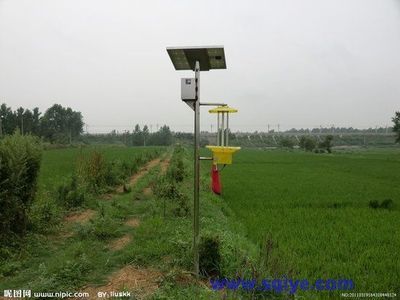Tenure can be described as significant job security, which oncegranted, almost always guarantees employment for life. Tenure trackis how some employees are classified when first hired, or early onin their career with an employer. Most often, this hiring practiceoccurs in academic communitycollege or university settings. A few other types of businessesmay use this hiring and promotionstructure, including legal and medical fields.
In the academic field, where this practice is most common,professors may be designated tenure track upon hire. This does notmean they are guaranteed a job for life, but that the universitywill be overseeing their work and will ultimately review that workin a few years’ time to determine fitness for an offer of tenure.For a new associateprofessor, behavior and accomplishments over the next few yearsare important. In the standard university, one of the litmus testsfor granting tenure is whether the employee can research andpublish findings on a regular basis.
Before a university will grant tenure, the tenure trackprofessor needs to demonstrate that she will add prestige to thecollege by her actions. The need to publish is usually calledpublish or perish. Tenure track teachers who don’t publish enoughwork may not be offered tenure, but may keep their jobs asassociate professors and be up for periodic review. Gettingpublished is not the only test, and associate professors may alsoneed to demonstrate strong teaching skills and a certain amount ofdiplomacy when it comes to working with tenured professors who makehiring decisions. Average time between being hired and beingoffered tenure is about five to six years, though this mayvary.
Definite criticism of tenure as an employment strategy exists.Once this status is achieved, workers are less accountable fortheir actions and there are many examples of burned out teacherswho have extraordinary job security. Typically, it can take a greatdeal to discharge an employee who has a tenured position which hasled to criticism of the system.
Another concern is that many universities are now limitingtenure track positions. Studies of academic hiring practicesshow a steady decline of those being offered associatedprofessorships, with preference in hiring leaning toward non-tenuretrack positions like lectureror adjunct professor. Usually, associates who are hired haveaccess to benefits but more temporary hiring structures eliminatethis. Hiring temporary workers may be one means of saving money,but it is changing the way university employment is structured.
What can be said is that the trend today is toward hiringemployees who are not tenure track. Since tenured positions are notas prevalent, people hoping to be full professors must workextremely hard to distinguish themselves before beginning a jobsearch. The degree to which professional achievements or publishingis required prior to landing an associated professorship alsodepends on the school and its reputation.
Tenure tracks are career paths in a highereducation institution that lead to full-time, permanentpositions as professors and differ from non-tenure tracks that arerenegotiated on a regular basis. These jobs are guaranteed, and atenured professor cannot usually be fired or laid off, except inthe most extreme circumstances, such as when an entire academicdepartment is eliminated from a university. Most new hires begintenure tracks as assistant professors and then progress toassociate professors and eventually become full professors. In manyuniversities, assistant professors are expected to meet a certainnumber of teaching and research targets, and progress is reviewedbefore a promotion isgranted to associate and eventually fullprofessor. Although full professors achieve tenure and theassociated job security, not all tenure tracks lead to guaranteedpositions, and assistant professors can be fired if they do notmeet expectations.
Newly hired professors begin tenure tracks on a probationarybasis, and their progress is reviewed on a predetermined schedule.Often, they are hired for a one- to three-year initial contract,which specifies goals that the professor will need to achieve inthe areas of teaching and research. After the initial appointment,the assistant professor's progress will be reviewed by a boardcomposed of the head of the academic department, called thedepartment chair, and other faculty in the department. The reviewboard assesses the assistant professor's progress and decideswhether to renew or terminate the contract.
Contracts for tenure tracks may be renewed for a secondassistant professorship, or a new contract may be offered for aposition as associateprofessor. Often, a faculty member is tenured upon thepromotion to associate professor. The associate will typically bereviewed in another designated time period, usually several years,to assess whether a promotion to full professor is appropriate.This review is similar to the one for assistant professors andassesses teaching scores, published research, and othercontributions to the academic discipline as a whole.
Once tenure tracks lead to tenured positions, universitiestypically extend the offer of tenure each year. Full professors maynot receive a substantial increase in salary alongwith the promotion, but they usually serve as mentors to juniorfaculty and graduate students. Full professors therefore carry alighter teaching load and typically teach higher level courses,while assistants and associates are responsible for introductory-and intermediate-level classes. Full professors also participate asPhD boardmembers and evaluate doctoral students' performance.
Tenure review is an evaluation process conducted todetermine whether or not an academic should be granted tenure. Tenureis an employment status that limits the circumstances under whichsomeone can be dismissed. Once a faculty member is offeredtenure, it is very difficult toremove that faculty member from a teaching position. There are anumber of reasons why colleges and universities use a tenure system. One of the most important is thedesire to protect academicfreedom by ensuring that faculty members cannot be dismissedfor holding controversial or unpopular opinions.
When someone is hired to join the faculty of a college oruniversity, the new hire may be put in a tenure trackposition, meaning that he or she can become eligible fortenure. The faculty member movesthrough a series of steps with periodic promotions based onperformance and eventually a tenurereview is conducted. The timing ofsuch reviews varies depending on policies at the institution.

In a tenure review, a number of facets of performance areconsidered. Evaluations from students and other faculty are weighedalong with the faculty member's publishing credits and otheraccomplishments. Reports are accepted from the department thatemploys the faculty member. The college may also consider issuessuch as the faculty member's reputation and area of expertise. Theprocess is designed to be thorough and balanced so that a completepicture of the tenure prospect iscreated.
A tenure review committee gathers all of thisinformation in a report, discusses the report, and votes. Aprofessor who is denied tenure mayhave an opportunity to be reviewed again at a later date. Denialsuggests that the committee felt that the professor was lacking insome area. This deficiency must be addressed before an applicationfor tenure will be successful. Ifthe tenure application is approved,the professor will be offered a tenured position. Some colleges anduniversities use a process known as post-tenure reviewto continue assessing faculty members who have achieved tenuredpositions.
Teaching tenure providesprofessors with considerable job security. In some regions, thepractice of tenure has been heavilycriticized. Critics believe that tenure removes incentives for excellence,because professors can be confident that they will not be fired forfailing to publish, not meeting student needs, or poor teaching.Alternatives to tenure includeoptions such as long term contracts that provide people with jobsecurity, but not guaranteed permanentemployment.
 爱华网
爱华网

